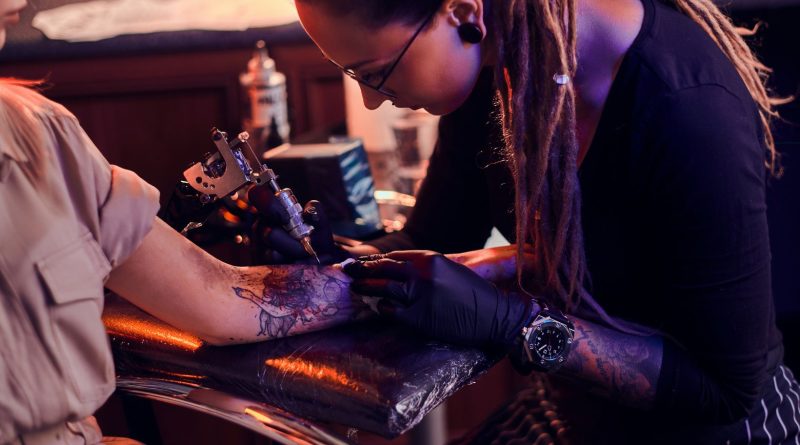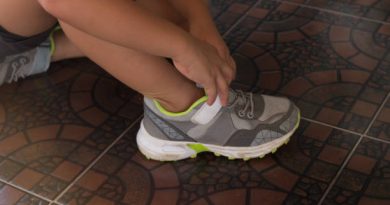Precautions To Take Before Getting A Tattoo
If you’re considering getting a tattoo, there’s a lot to think about. Should it be black or color? What style? Where should it go on your body? But one thing that often gets overlooked is safety. Tattoos are permanent—so you want to make sure your artist knows what they’re doing before they start inking up your skin. Here are some tips for keeping yourself and others safe while getting inked:
Talk to your artist
- Talk to your artist. Before getting a tattoo, you’ll want to ask your artist about their experience and the process they use for creating your tattoo. It’s important that they’re experienced enough to create what you want, so that it turns out as well as possible (and doesn’t look like the inkblot test).
- Ask about sterilization practices. The equipment used on you should be sterile and clean, which means it was just used on someone else and hasn’t been used for anything else in between. Ask how often this happens at their shop—you don’t want something reused on another person before being sanitized again!
- Get aftercare instructions in writing. Aftercare is just as important as the initial process itself when it comes down to preventing infections or other complications later on down the road; follow these instructions carefully! If they don’t write them down for you ahead of time (or if they seem unsure), find another shop who does know what they’re doing here–it could save both parties some pain later on down this road…
Eat a meal before sitting down
To maintain your health and safety before getting a new tattoo, it’s important that you eat a meal beforehand. Eating food will help you relax, which can minimize both pain and swelling. Avoid eating too much or too little prior to your appointment; both scenarios may cause stomach upset or other problems during the tattooing process. It’s also advisable not to drink alcohol before getting inked—if you do, this could increase dehydration as well as lower blood sugar levels (which could lead to dizziness).
Also remember that tattoos are long-term commitments: if you’re sick or taking any type of medication when considering getting one done on your body, try waiting until those issues pass so they don’t affect how well the ink heals. And finally: always make sure that whoever is giving the tattoo is qualified and licensed!
Use a numbing ointment or patch
Using a numbing ointment or patch is also an option that can help with the pain. You should use it for at least an hour before your appointment, but don’t leave it on longer than that because it could cause some irritation.
You’ll still feel some pain when getting the tattoo, but it’ll be less intense than usual. Just make sure to remove the patch if you have open wounds like cuts or blisters; otherwise they may become infected!
Pick the right placement
If you want your tattoo to be visible and not covered up by clothing, make sure that it’s on skin. You should also avoid any sensitive areas of the body such as inside the mouth or around the eyes. You don’t want to get a tattoo that can’t be seen because of where it is placed or what tattoos cover it up!
The following are some examples of good places to get a tattoo:
- On the area between your elbow and wrist (the “funny bone”)
- On your forearm/upper arm (or just above or below if you have shorter arms). For example, this is where many people choose their wristbands or bracelets because they are so visible when worn but still somewhat hidden when not in use! This makes sense especially if you’re trying out different styles before committing yourself fully; after all, who knows how long those short pajama pants will last? Maybe only until next season at most…
Do your research before walking in
It’s important to do your research before you walk into a tattoo shop. You should check out the artist’s portfolio, ask for references from other clients, and see pictures of their tattoo shop. You should also find out if they have any websites and/or social media pages that you can see their work on. If they are not willing to show you this information, it may be best to look elsewhere.
The health certificate is another important thing to ask about when getting a tattoo done by someone new. This will tell you if they’ve been exposed to any infectious diseases that could be passed on through blood or bodily fluids during the tattoo process–and there are many! There are plenty of ways these infections can spread at an unsafe rate due to poor hygiene habits in certain situations (like using contaminated needles). A lot of people don’t realize how easy it is for these infections like Hepatitis B and HIV/AIDS among others spread throughout communities without proper precautions being taken beforehand by everyone involved with getting artwork done in general–even those who don’t regularly partake themselves!
Skip the caffeine and alcohol beforehand
Before getting a tattoo, it’s important to know that caffeine and alcohol can cause your blood vessels to constrict. This means less blood will flow through the area of the skin where you’re getting inked, which can make the process more painful. Also, because these substances are dehydrating, they can leave you feeling lightheaded. If you’re planning on having a drink or two at your next social gathering (or pre-tattoo celebration), be sure to wait until after your tattoo is done before imbibing.
Make sure you’re 100 percent happy with your design
Before you get inked, make sure you’re 100 percent happy with your design. If it turns out that the tattooist didn’t do what you wanted or if the shop messed up and there’s a mistake, go back to the artist and ask them to fix it.
If they refuse or if they don’t have time for another appointment, call someone else. It might be more expensive but it’s worth investing in an artist that will give you what exactly want.
It’s your body so treat it well!
Keep an eye on the artist’s needle prep area, equipment, and furniture
You should also keep an eye on the tattoo artist’s needle prep area, equipment, and furniture. If a tattoo artist is using a new set of needles for each customer, this shows that they are taking proper precautions to prevent cross-contamination. It’s also important that you can see the artist’s equipment—which will include their work station, ink pots or tubes, and any other supplies used in creating your piece. You want to be sure that all of these items are clean and sterile before proceeding with your design!
If you ever have questions about the cleanliness of an artist’s workspace or tools, don’t be afraid to ask! There’s no harm in asking if they use disposable gloves while working with clients (if not already provided by law), as well as making sure that no one else has touched any part of your chosen design beforehand (especially if it is something like a sleeve).
Get informed about safety.
Tattooing is a form of body modification. This is true whether it’s done with electric tattoos, traditional hand-poked tattoos or any other method. As such, you should be aware of the risks associated with getting any type of tattoo and take precautions to protect yourself against those risks.
For example, you may have heard about people who have developed infections after getting tattoos. This can happen if the equipment isn’t sterilized well enough before the artist uses it on their clients: they won’t know whether they’re using clean needles or ink from an infected vial! The best tattoo parlour in Bangalore will ensure that everything is sterile and ready for use before starting your session—and this includes all necessary instruments as well as disinfectant wipes for wiping down surfaces like tables or chairs (since these things might accidentally come into contact with your skin).
Conclusion
Don’t get me wrong, getting a tattoo is a fun experience and it can be an exciting one. But you need to remember that this is still a medical procedure, so it’s important to take precautions before you go under the needle!




